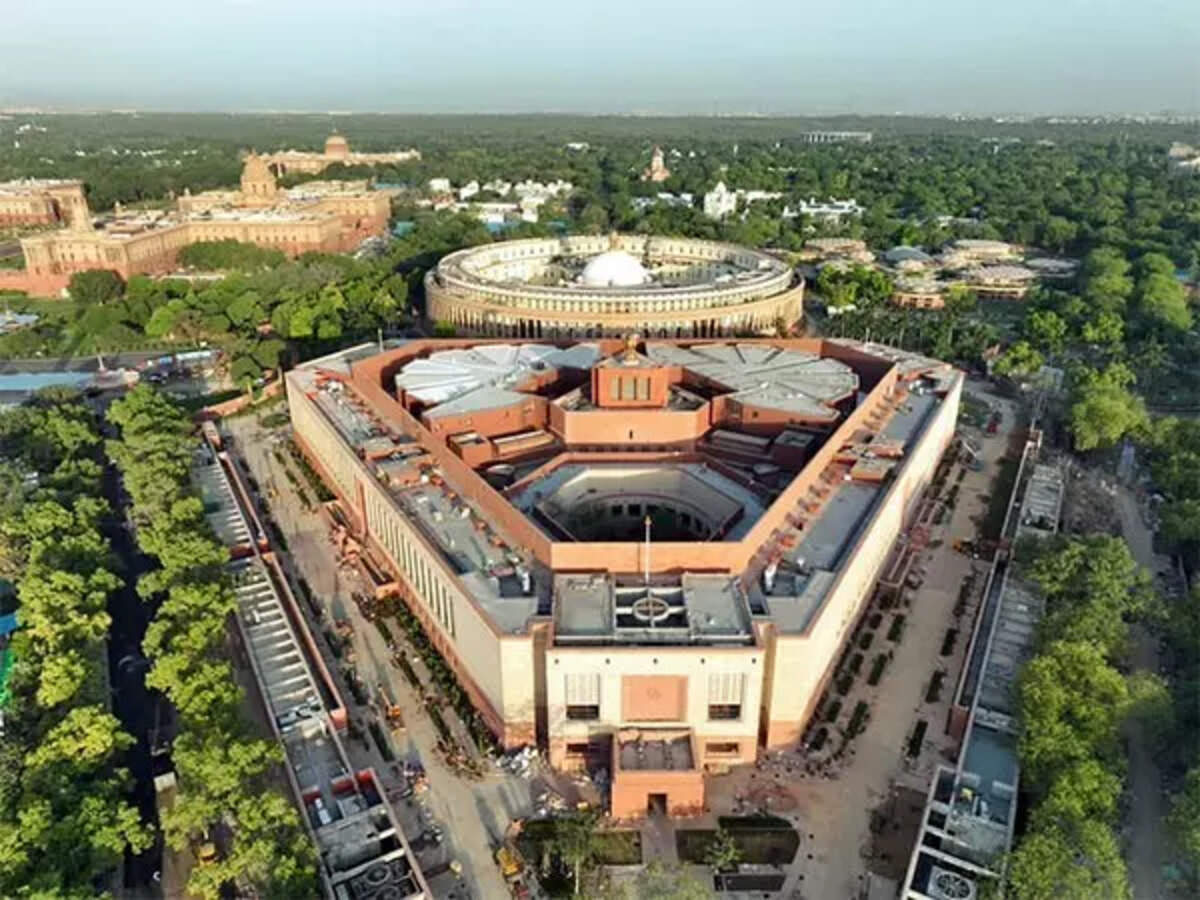World
Government Proposes Bills for Removal of Leaders on Criminal Charges

The government plans to introduce three significant bills in Parliament aimed at establishing a legal framework for the removal of political leaders, including a prime minister, Union minister, and chief ministers of Union Territories, when they are arrested or detained on serious criminal charges. This initiative is set to be presented on March 15, 2025.
The proposed legislation comprises the Government of Union Territories (Amendment) Bill 2025, the Constitution (One Hundred And Thirtieth Amendment) Bill 2025, and the Jammu and Kashmir Reorganisation (Amendment) Bill 2025. Union Home Minister Amit Shah will also introduce a motion in the Lok Sabha, recommending that these bills be referred to a joint committee of Parliament for further consideration.
Under the current framework established by the Government of Union Territories Act, 1963, there is no provision for the removal of a chief minister or minister who is arrested and detained due to serious criminal charges. To address this gap, the Government of Union Territories (Amendment) Bill 2025 seeks to amend section 45 of the Act, thereby enabling the removal of such officials under specified circumstances.
The Constitution (One Hundred And Thirtieth Amendment) Bill 2025 aims to amend Articles 75, 164, and 239AA of the Constitution. These amendments are intended to provide a legal structure for the removal of a prime minister or a minister within the Union Council of Ministers, as well as the chief minister or a minister in the Council of Ministers of States and the National Capital Territory of Delhi when facing serious criminal charges.
Similarly, the Jammu and Kashmir Reorganisation (Amendment) Bill 2025 addresses the absence of a removal provision within the Jammu and Kashmir Reorganisation Act, 2019. This bill proposes to amend section 54 of the Act to facilitate the removal of a chief minister or minister under the same serious criminal circumstances.
The introduction of these bills reflects the government’s commitment to ensuring accountability among its leaders. As the political landscape evolves, these legislative measures could significantly impact governance and political stability in the Union Territories and beyond. The bills will now undergo scrutiny in the joint committee, where further discussions and potential modifications will take place.
-

 World5 months ago
World5 months agoSBI Announces QIP Floor Price at ₹811.05 Per Share
-

 Lifestyle5 months ago
Lifestyle5 months agoCept Unveils ₹3.1 Crore Urban Mobility Plan for Sustainable Growth
-

 Science4 months ago
Science4 months agoNew Blood Group Discovered in South Indian Woman at Rotary Centre
-

 World5 months ago
World5 months agoTorrential Rains Cause Flash Flooding in New York and New Jersey
-

 Top Stories5 months ago
Top Stories5 months agoKonkani Cultural Organisation to Host Pearl Jubilee in Abu Dhabi
-

 Sports4 months ago
Sports4 months agoBroad Advocates for Bowling Change Ahead of Final Test Against India
-

 Science5 months ago
Science5 months agoNothing Headphone 1 Review: A Bold Contender in Audio Design
-

 Top Stories5 months ago
Top Stories5 months agoAir India Crash Investigation Highlights Boeing Fuel Switch Concerns
-

 Business5 months ago
Business5 months agoIndian Stock Market Rebounds: Sensex and Nifty Rise After Four-Day Decline
-

 Sports4 months ago
Sports4 months agoCristian Totti Retires at 19: Pressure of Fame Takes Toll
-

 Politics5 months ago
Politics5 months agoAbandoned Doberman Finds New Home After Journey to Prague
-

 Top Stories5 months ago
Top Stories5 months agoPatna Bank Manager Abhishek Varun Found Dead in Well









